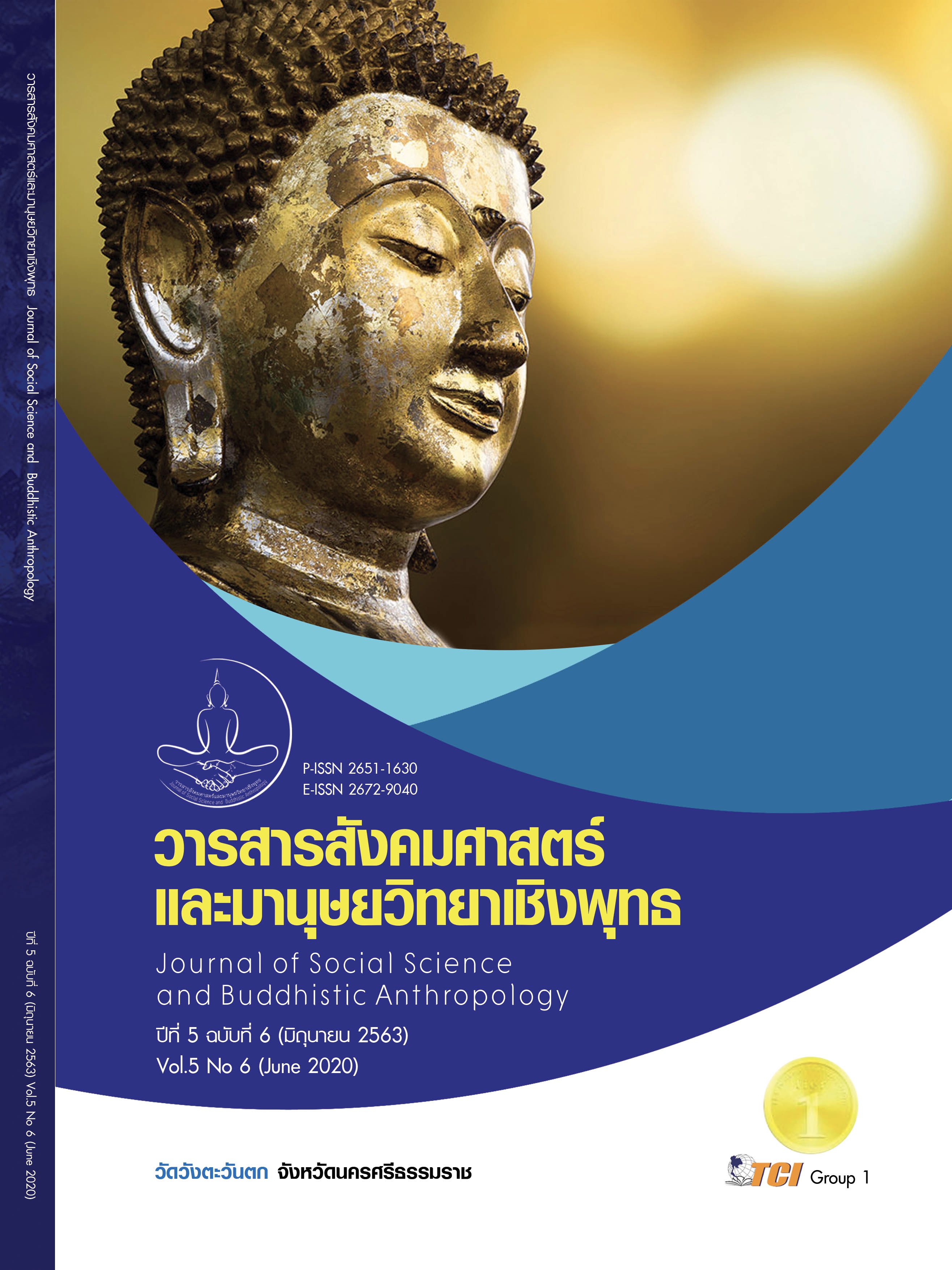CONFLICT OF INTERESTS OF THAI POLITICAL BUSINESS GROUPS
Keywords:
Conflict of Interests, Political Business, Interest GroupsAbstract
The research article on the conflict of interests of Thai political business groups has the objectivesnamely, 1) to analyze the motivation for participating in the political activities of the political business group and 2) to study the characteristic or form of the conflict of interests of the political business group, this article is qualitative research by using in-depth interviews. A person who gave the data which composed national politician group, interest group, political influential group, local politician group, business group and academic group, a total of 30 people, then the information to be categorized, performed data analysis and presented in the form of descriptive analysis. The results of the research found that 1)the motivation and development of participation in political activities of political business group including accepting various benefits, doing business with yourself, working after leaving a public position or after retirement, working of part time, insider information awareness, using of government property for personal business benefit and the introduction of public projects in the constituency for political gain, by the conditions that business groups are interested in participating in political activities including personal conditions, political and policy conditions, economic conditions, social conditions, legal conditions and various environmental conditions and 2) there is the positive and negative political effects of the business groups participating in political activities that causes conflict of interest, such as using positions to help close relatives and friends, the lack of moral and ethical consciousness, the exchange of benefits by using the job position, another working that conflicts with the same place and cloaking a wrong action. Therefore, there is a conflict of interest of the political business group in Thailand which is the obstruction of the country development.
References
กิตติพศ กำเนิดฤทธิ์. (2550). การขัดกันแห่งผลประโยชน์กรณีการถือหุ้นของรัฐมนตรี. กรุงเทพมหานคร: รัฐสภาสาร.
จิระศักดิ์ สิทธิวงศ์. (2540). มูลเหตุจูงใจในการเข้าสู่การเมืองของนักธุรกิจ: กรณีศึกษาสมาชิกสภาผู้แทนราษฎรในการเลือกตั้งทั่วไป พ.ศ. 2539. ใน วิทยานิพนธ์สังคมศาสตรมหาบัญฑิต สาขาวิชารัฐศาสตร์. มหาวิทยาลัยเชียงใหม่.
จุมพล หนิมพานิช. (2548). การบริหารจัดการภาครัฐแนวใหม่: หลักการแนวคิด และกรณีตัวอย่างของไทย. ใน วิทยานิพนธ์สังคมศาสตรมหาบัณฑิต สาขาวิชารัฐศาสตร์. มหาวิทยาลัยสุโขทัยธรรมาธิราช.
เจิมศักดิ์ ปิ่นทอง. (2547). รู้ทันทักษิณ 5: สงครามการเมือง. กรุงเทพมหานคร: ขอคิดด้วยคน.
ชาย โพธิสิตา. (2554). ศาสตร์และศิลป์แห่งการวิจัยเชิงคุณภาพ. กรุงเทพมหานคร: อมรินทร์ พริ้นติ้ง.
ปรีชา อุปโยธิน และสุรีย์ กาญจนวงศ์. (2542). พ่อค้าและนักธุรกิจกับระบบรัฐสภาไทย ปัญหาปัจจุบันและการวิจัยอนาคตกาล. กรุงเทพมหานคร: เฟื่องฟ้าพริ้นติ้งจำกัด.
พรศรี วิโรจน์วุฒิกุล. (2548). บทบาททางเศรษฐกิจและการเมืองของนักธุรกิจท้องถิ่นในจังหวัดชลบุรี. ใน วิทยานิพนธ์รัฐศาสตรมหาบัณฑิต สาขาวิชาเศรษฐศาสตร์การเมืองและการบริหารจัดการ. มหาวิทยาลัยบูรพา.
ศุภลักษณ์ ตรีสุวรรณ. (2548). แรงจูงใจในการปฏิบัติงานของพนักงานบริษัท เอซอินชัวรันซ์จำกัด. ใน วิทยานิพนธ์บริหารธุรกิจมหาบัณฑิต สาขาการจัดการทั่วไป. มหาวิทยาลัยราชภัฏสวนดุสิต.
สมภพ โหตระกิตย์. (2540). 40 ปี ในสำนักงานคณะกรรมการกฤษฎีกา. กรุงเทพมหานคร: อมรินทร์พริ๊นติ้งแอนพับลิชชิ่ง .
Herzberg F. (1959). The Motivation of Work. New York: John Wiley & Sons.
Maxwell, J. (1992). Understanding and validity in qualitative research. The qualitative researcher’s companion, 3(2), 37-64.
Mcmillanz, J. and Schumacher, S. (1997). Research in Education. America: Addison – Wesley Educational Publishers Inc.
Strauss A. & Corbin J. (1998). Basics of qualitative research: Techniques and procedures for developing grounded theory. AmericaThousand Oaks: Gower Publishing Company.
William, S. (1987). Conflict of Interest: The Ethics Dilemma in Politics. Vermont: Gower Publishing Company.









